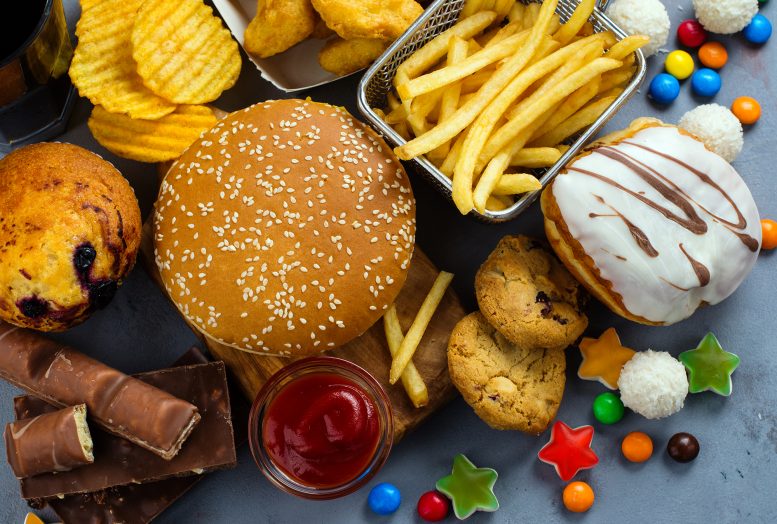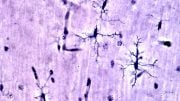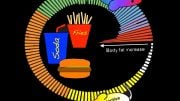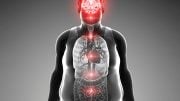
Much research has pointed to how an unhealthy diet correlates to obesity, but has not explored how diet can bring about neurological changes in the brain. A recent Yale study has discovered that high-fat diets contribute to irregularities in the hypothalamus region of the brain, which regulates body weight homeostasis and metabolism.
Led by Sabrina Diano, the Richard Sackler Family Professor of Cellular & Molecular Physiology and professor of neuroscience and comparative medicine, the study evaluated how the consumption of a high-fat diet — specifically diets that include high amounts of fats and carbohydrates — stimulates hypothalamic inflammation, a physiological response to obesity and malnutrition.
The researchers reaffirmed that inflammation occurs in the hypothalamus as early as three days after consumption of a high-fat diet, even before the body begins to display signs of obesity. “We were intrigued by the fact that these are very fast changes that occur even before the body weight changes, and we wanted to understand the underlying cellular mechanism,” said Diano who is also a member of the Yale Program in Integrative Cell Signaling and Neurobiology of Metabolism.
The researchers observed hypothalamic inflammation in animals on a high-fat diet and discovered that changes in physical structure were occurring among the microglial cells of animals. These cells act as the first line of defense in the central nervous system that regulate inflammation. Diano’s lab found that the activation of the microglia was due to changes in their mitochondria, organelles that help our bodies derive energy from the food we consume. The mitochondria were substantially smaller in the animals on a high-fat diet. The mitochondria’s change in size was due to a protein, Uncoupling Protein 2 (UCP2), which regulates the mitochondria’s energy utilization, affecting the hypothalamus’ control of energy and glucose homeostasis.
The UCP2-mediated activation of microglia affected neurons in the brain that, when receiving an inflammatory signal due to the high-fat diet, stimulated the animals in the high-fat diet group to eat more and become obese. However, when this mechanism was blocked by removing the UCP2 protein from microglia, animals exposed to a high-fat diet ate less and were resistant to gain weight.
The study not only illustrates how high-fat diets affect us physically, but conveys how an unhealthy diet can alter our food intake neurologically. “There are specific brain mechanisms that get activated when we expose ourselves to a specific type of foods. This is a mechanism that may be important from an evolutionary point of view. However, when food rich in fat and carbs is constantly available it is detrimental.”
Diano’s long-standing goal is to understand the physiological mechanisms that regulate how much food we consume, and she continues to perform research on how activated microglia can affect various diseases in the brain, including Alzheimer’s disease, a neurological disorder that is associated with changes in the brain’s microglial cells and has been shown to have a higher incidence among obese individuals.
Reference: “Microglial UCP2 Mediates Inflammation and Obesity Induced by High-Fat Feeding” by Jung Dae Kim, Nal Ae Yoon, Sungho Jin and Sabrina Diano, 5 September 2019, Cell Metabolism.
DOI: 10.1016/j.cmet.2019.08.010









It is the high carbs that are the real villain here.
Wow, another block of research into the fats and Also adding the sugars and carbs.
How about researching the fats and leaving out All Carbs, like many people actually do.
This type of research is like having people who eat vegetarian diets and smoke and then declaring that eating veggies cause lung cancers and other disorders, I mean, they are are consuming healthy natural plants !!
Trying to drag the people into a false fact again or trying to be famous? Who is this that giving this report?
I eat plenty of fat: nuts, avocados, olive oil, seeds etc. Better cut down.
Please be aware that carbs are probably the culprit for obesity. If removed from the diet, the person begins to lose weight.
It’s called a Ketogenic diet. I have lost 20 lbs in the last 6 weeks or so since 1st August, eating a low carbohydrate, high fat diet. The only carbs I’ve eaten are berries, just a handful a day.
Regarding inflammation, type of fat matters. For example, Sunflower oil is high in linoleic acid (an omega-6 fatty acid), which is highly inflammatory. Diet induced obesity is typically caused by high carb diets. Low carb, high fat diets will cause weight loss in most humans.
I love the comments from the crowd. There are some things to consider before one reads this article with their anti-carb lenses on at the Taubes Shrine.
1. This study was probably done using “dietary induced obesity prone rats”. These rats are genetically advantageous in studying obesity in some respects.
2. Ketogenic diets are usually just a shift in macros with often 70% of the diet coming from fat. Keto diets are effèctive but often result in caloric reduction due to satiey and fullness. Please … keto on. Just keep in mind that a keto diet doesn’t mean calories are not relevant.
3. Keto diets have some carbs.
4. They nowhere define what a high fat diet is.
5. Not all fats are created equal. Some fats are very inflammatory especially how they have been handled.